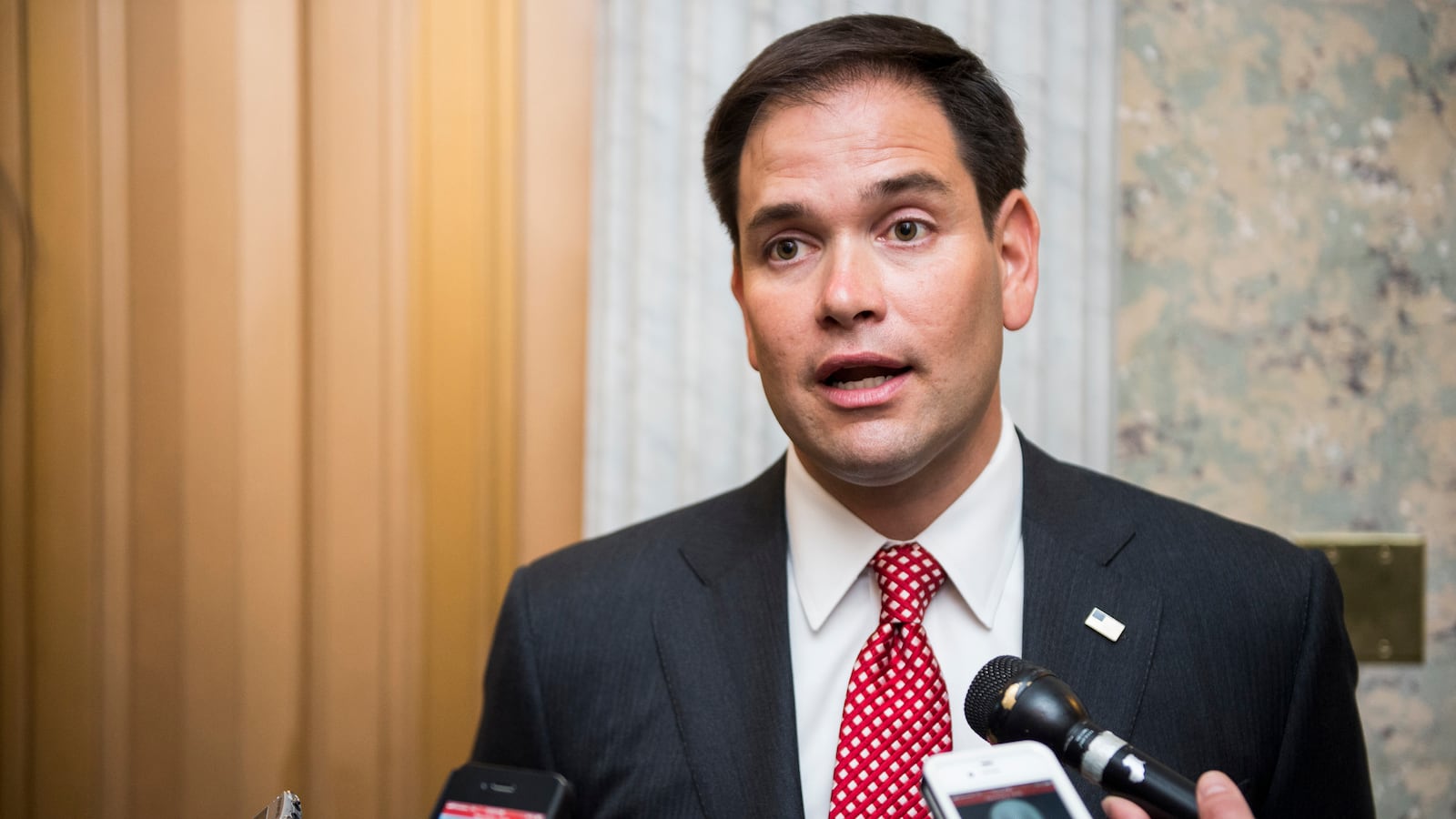As prominent Republicans across the country lead the way on criminal-justice reform, at least one—Florida Sen. Marco Rubio—seems to be casually clinging to the war on drugs, and it could have fatal consequences for his potential presidential bid.
In an op-ed for the conservative Washington Times, Rubio made the noncontroversial case that whomever succeeds Eric Holder as attorney general should be “committed to the Constitution,” and in doing so, seemed to make a vague endorsement of the war on drugs—placing him out of step with a large and loud faction of the conservative movement.
“While individuals from a variety of perspectives have made a compelling case that American law has been over-criminalized and over-federalized,” Rubio wrote, “…reform should not begin with careless weakening of drug laws that have done so much to help end the violence and mayhem that plagued American cities in prior decades.”
As reported by The Daily Beast in April, the right wing seemed to be arriving at the consensus that the war on drugs has failed, and modern criminal-justice policy needs a major overhaul at both the state and federal level. Emma Roller of the National Journal notes that even as crime rates have fallen, incarceration rates have stayed the same, and the rate of incarcerated parents has risen dramatically since the early 1990s.
In response, governors—like Rick Perry of Texas and Chris Christie of New Jersey—are taking steps to reform sentencing and treatment, as both a means of saving money and expressing Christian compassion that appeals to social conservatives. And federal lawmakers—like Kentucky Sen. Rand Paul—are introducing legislation to address the matter on a larger scale.
After the publication of Rubio’s op-ed, a senior aide for Paul told The Daily Beast: “Reforming federal drug laws is not careless, it is not a bad idea—it is, in fact, long overdue. Mandatory minimum sentencing and a preponderance of federal drug laws has led to the U.S. having the largest percentage of its population in prison in the entire world. Statistics show that drug laws hurt the most in poor, black and Hispanic communities, something we should be trying to fix, not championing.”
Rubio’s office has not yet responded to a request for clarification as to whether or not he supports the war on drugs, but libertarians have been after him on the topic ever since he dodged questions about marijuana—which he sort of supports for medical use—back in February. Asked if he’d ever puffed the magic dragon himself, Rubio refused to answer, because “If I tell you that I did, then kids will look up to me and say, ‘Well, I can smoke marijuana, ’cause look how he made it.’” Rubio then warned that you shouldn’t smoke marijuana because it is illegal. He has also claimed that there is no responsible way to use marijuana recreationally.
The Libertarian Republic, a—you guessed it—libertarian blog, pounced on Rubio: “Rubio has spent the past months extinguishing any hope that he might be joining Republicans like Rick Perry in moving towards a more libertarian stance on drug laws.”
Perry, in contrast, made waves in March when he told the right-wing crowd at CPAC: “You want to talk about real conservative governance? Shut prisons down. Save that money.” Paul, for his part, went even further, when he told the Urban League in a July speech: “I agree with the president’s commutation of sentences for people still trapped in prison for crack cocaine. Although the disparity in sentencing between powder and crack cocaine is now less glaring, we must make provision to free those sentenced under the old guidelines.”
Grover Norquist, the libertarian tax activist and noted Burning Man attendee, told The Daily Beast: “By the time we get to the caucuses, every single Republican running for president will be versed on this, and largely in the same place… Some guys will be playing catchup ball, but I do believe that, largely, this will become a consensus issue within the center-right.”
Rubio may just be one of the last to fall in line.





